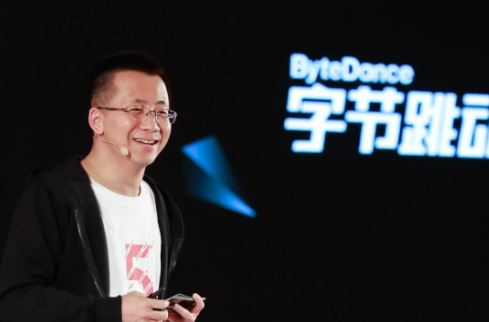Zhang Yiming, 38-year-old cofounder of TikTok, is now the world's richest internet entrepreneur. TikTok is part of ByteDance trade and Zhang owns about a quarter of ByteDance. He is currently worth more than $60 billion, competing with the likes of business giants Pony Ma, Zhong Shanshan and other billionaires.
Though this is a great achievement it might pose a danger to Zhang as the Chinese government is cracking down on country's powerful corporations and their billionaire founders. Recently the government had opened an antitrust probe against Alibaba founder Jack Ma and he was fined a massive amount of $2.8 billion. China has also ordered 34 internet companies to rectify their anti-competitive practices in May.

Who is Zhang Yiming?
Zhang Yiming was born on 1 April 1983 in Longyan, Fujian in China. He is the only son of civil servant parents. He is known as the cofounder of ByteDance that runs popular apps including news aggregator Toutiao and the video sharing platform TikTok.
Zhang initially had opted to major in microelectronics at Nankai University in Tianjin. But he then changed to software engineering and graduated in 2005. In 2006, he joined the travel website Kuxun and became its first engineer. Later, he was promoted as the technical director of the company.
He quit Kuxun and joined Microsoft in 2008. But he could not get adjusted to the corporate atmosphere and joined a start-up Fanfou. This too did not work out as the business failed. In 2009, when Kuxun was about to be acquired by Expedia, Zhang bought Kuxun's real estate search business and started his first company, 99fang.com.
After struggling for years to secure funding, he successfully launched ByteDance in 2012 with the help of Susquehanna International Group's investment. Firstly, he launched Toutiao news app in the same year and was successful in attracting more than 13 million daily users. Sequoia Capital, which had rejected Zhang's proposal before invested US$100 million in 2014.
He concentrated on expanding the company globally and introduced American-style of work productivity. The popular app TikTok [which is named Douyin in China] was launched in 2015. To expand its presence in the music field, ByteDance bought Musical.ly in 2016 for US$800 million and integrated it into TikTok.
How Did ByteDance Make Profit?
The year 2020 has been full of challenges for Zhang as ByteDance trade was affected from all corners. Trump-led USA had issued ban threats against TikTok app and even India, which has massive number of users had issued tough scrutiny against the app.
But instead of panicking Zhang used his business skills and concentrated on ByteDance's nascent and fast-growing Chinese businesses. He gave a boost to sectors from gaming to education and e-commerce. Thus, despite threats and restrictions on some of its social-media based apps, ByteDance made $35 billion sales in 2020 alone churning out a profit of $7 million. Though famous for short-video apps and news aggregator Toutiao, ByteDance doubled its revenue last year following its ventures in the e-commerce and online gaming business.
Zhang is known to be a person of long-term plans. It is said that he does not get discouraged by short-term set-backs. "Keep an ordinary mind, that's something that sounds easy but important to do. Put in the plainest words, when hungry, eat, when tired, sleep," Bloomberg had quoted Zhang as saying.








